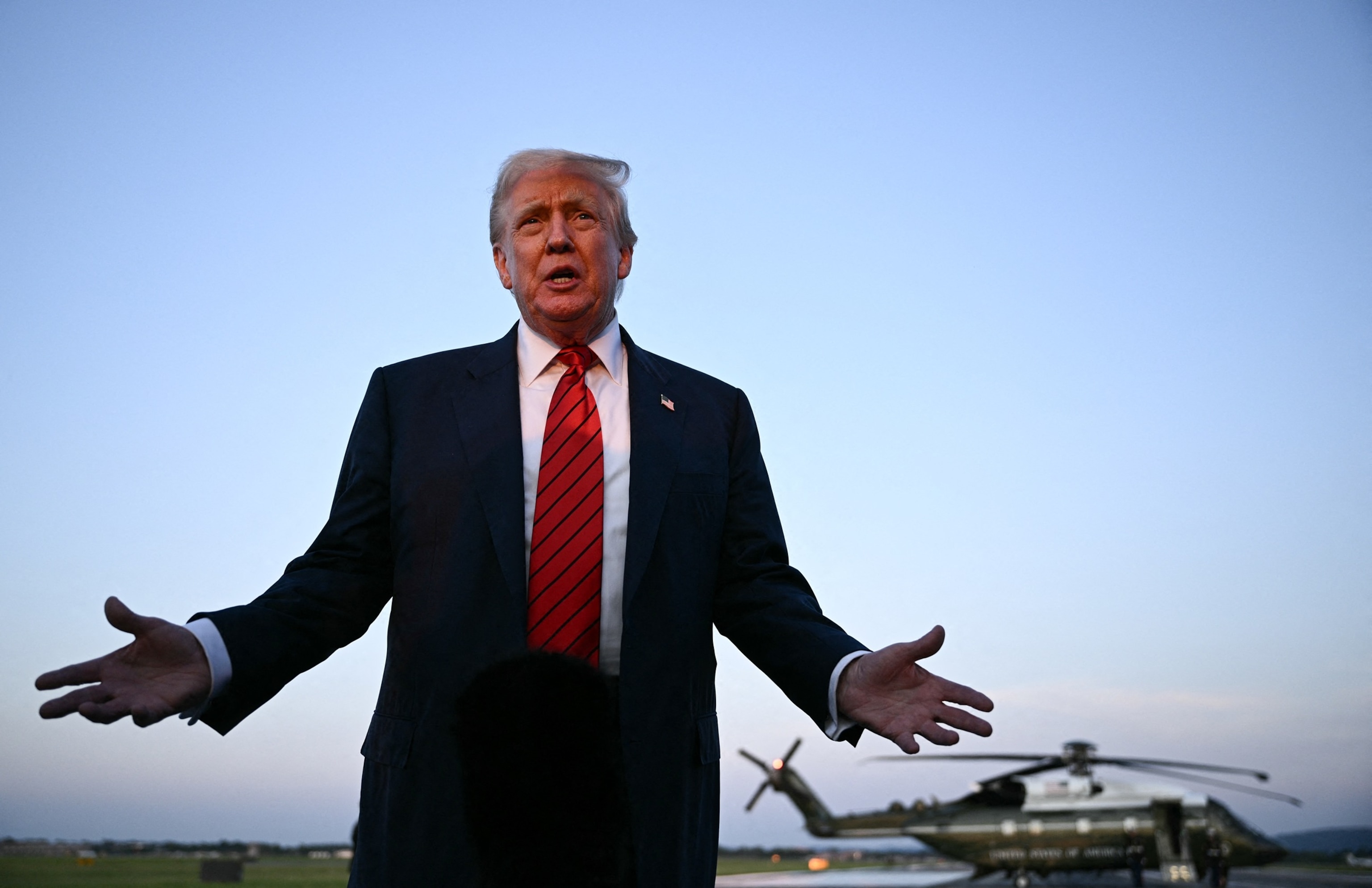Weak job data left hours before President Donald Trump dismissed the head of labor statistics. A report on the Gross Domestic Product indicated a slowdown in growth during the first half of the year. A large round of rates reached almost 70 countries.
These events, all since last week, took some analysts to warn about a recession and others to generate concerns about the political independence of American economic data.
The stock market, however, barely blinked.
The Heavy Technological Nasdaq has increased 0.4% since the end of the negotiation last Tuesday, one day before the GDP report marked the first in a series of important developments. During that same period, the S& P 500 has fallen 0.6%, while Dow Jones industrial average has fallen 1.4%.
Despite the mixed results, the indices remain well above where they were standing three months ago. The Nasdaq has increased by 20% since May, while the S& P 500 has jumped 13%. The Dow has risen 7% during that period.
The analysts who spoke with ABC News attributed the optimism of investors to solid corporate profits, the perspective of interest rate cuts in the Federal Reserve and a permanent expectation that Trump does not return to the initially pronounced tariffs in April.
The resistant stock market has generated its own impulse, some analysts added.
“The market mentality is to adopt the risk because that brings rewards instead of losses: it continues to shrink it,” News Steve Sosenick, a strategist chief of the Interactive Brokers commercial firm, told ABC News. “That can paper of many concerns.”
The economy added an average of approximately 35,000 jobs for three months that end in July, which marks an important deceleration of approximately 128,000 jobs added monthly during the previous three months, US Labor Statistics Office Data were shown on Friday. Employers are hiring at their slowest pace since 2020.
Two days before, fresh GDP data indicated an average annualized growth of 1.2% in the first half of 2025, well below the growth of 2.8% last year.
Hours after the publication of the job report on Friday, Trump dismissed the BLS commissioner, Erika Mtntarfer, designated by former President Joe Biden, who was confirmed by a bipartisan vote in the Senate in 2024.
In a publication on social networks, Trump flew strong criticism and accusations unfounded in Mtientefer, claiming without evidence that the data had been “manipulated.” The job report presented reviews of the data from the previous months, which is a routine practice.
“Trump promoted his economic performance in a publication on social networks:” The economy is booming under ‘Trump’ despite a Fed that also plays games, this time with interest rates. “
Mtientefer did not respond immediately to the request for comments from ABC News.
“It has been the honor of my life to serve as a BLS commissioner along with the many dedicated officials in charge of measuring a vast and dynamic economy,” said Mcentofer in a publication on social networks after his dismissal. “It is a vital and important work and I thank your service to this nation.”

President Donald Trump talks to journalists at the Lehight Valley International Airport, on August 3, 2025, in Allentown, pa.
Brendan Smialowski/AFP through Getty Images
The main rates of actions fell significantly last Friday, which suggests concern among merchants about the weak jobs report. In a matter of days, however, the actions had largely recovered the losses.
Together with the mixed signals of the economy, a series of important companies have published strong profits, indicating a resistant final corporate result. The high performance list includes technological giants such as Meta and Microsoft, which represent a disproportionately large proportion of the S& P 500.
“Markets like to focus on earnings,” News Ed Yardeni, president of the market advice firm and Yardeni Research and former head of investment strategies of the Ralvas Division of the United States of Deutsche Bank, told ABC News. “They have been quite impressive considering that some of the economic data have been soft lately.”
The prospect of the economy remains uncertain, leaving open the possibility of continuous and high growth of stocks, some analysts said. The economy has greatly avoided the type of loss of generalized employment that often accompanies a recession. Consumer spending, which represents approximately two thirds of economic activity, increased more for three months that ended in June.
If the economy sours, the Federal Reserve will probably advance with interest rate cuts, which drive the market, Susnick said.
“There is the belief that there is nothing better for the market than a rate cut,” added Sosick.
Even so, the combination of high rates and slow hiring could precipitate the United States to a double economic blow known as “staplation”, in which the economy slows down while prices increase.
Potential stagflation raises difficulty for Fed. If the Fed increases interest rates as a means to protect against inflation induced by the rate in this scenario, runs the risk of quelling loans and further slowing down the economy. On the other hand, if the Fed reduces rates to stimulate the economy against a potential deceleration, threatens to increase spending and make inflation worse.
“There is definitely the possibility that the market is wrong in inflation,” Jay Ritter, a professor of finance at the University of Florida, told ABC.
For now, markets remain opportunistic about current profits, instead of distrusting possible winds against which may arise in the coming weeks or months, Sosnick said.
“This market prefers to deal with the here and now than to deal with the conceptual,” Susnick added.






